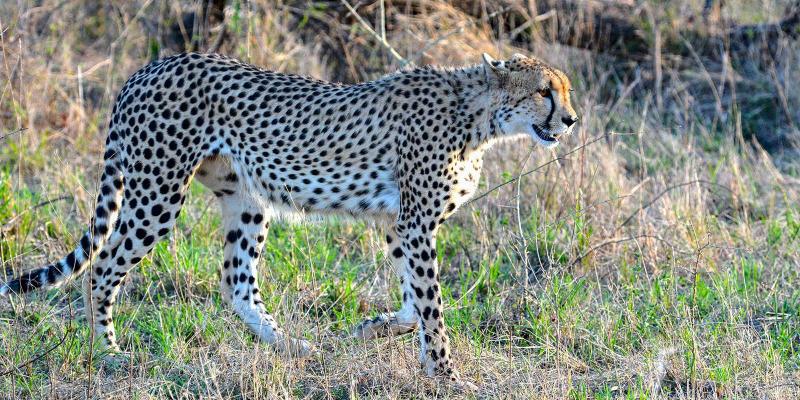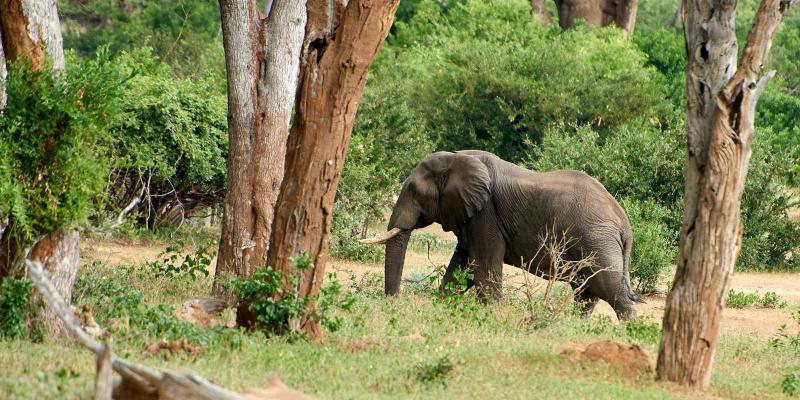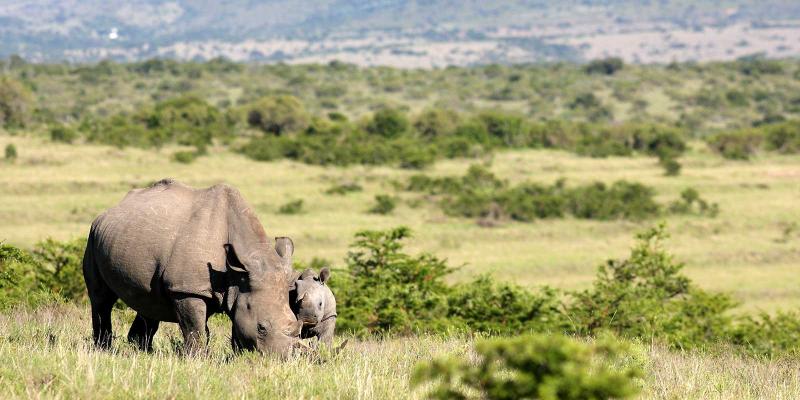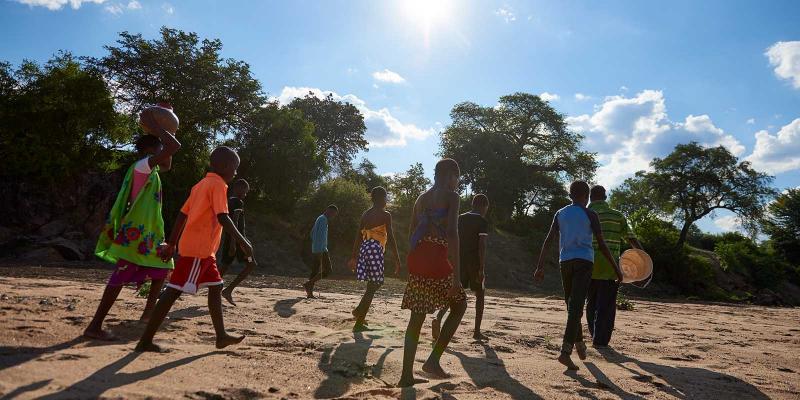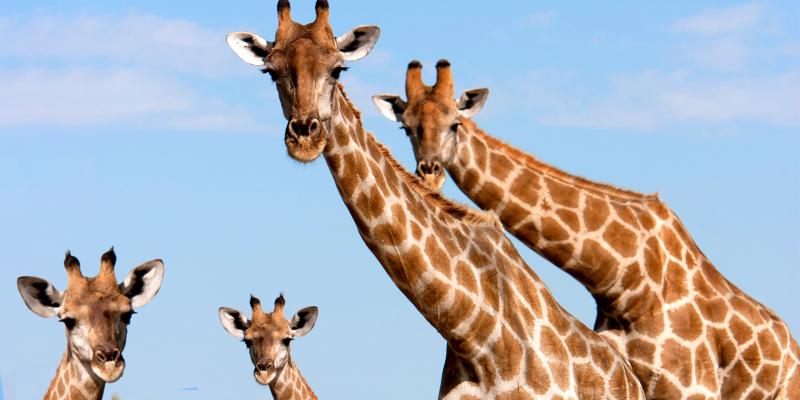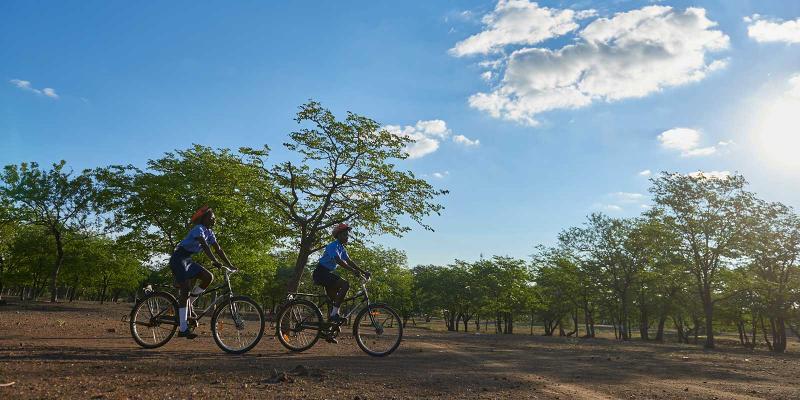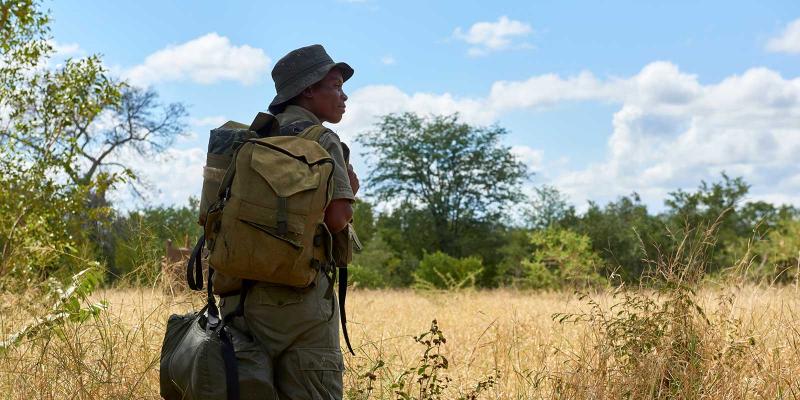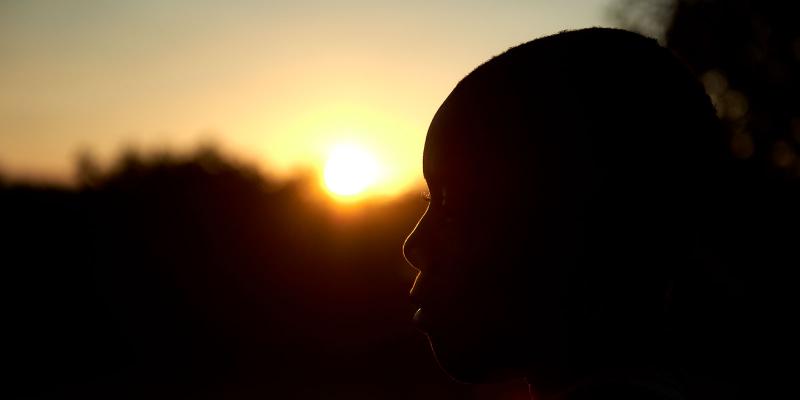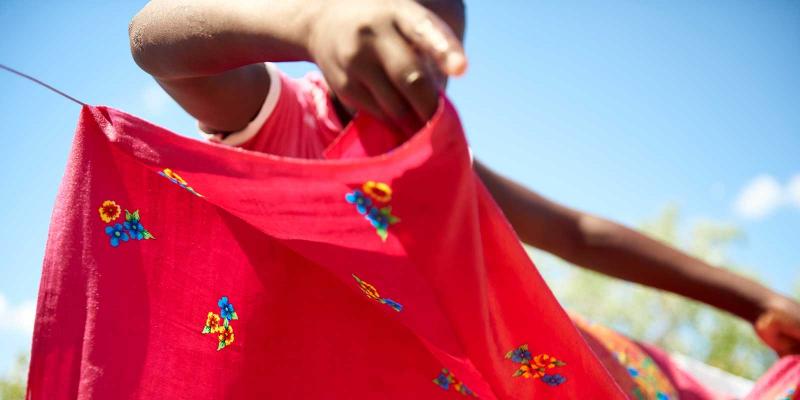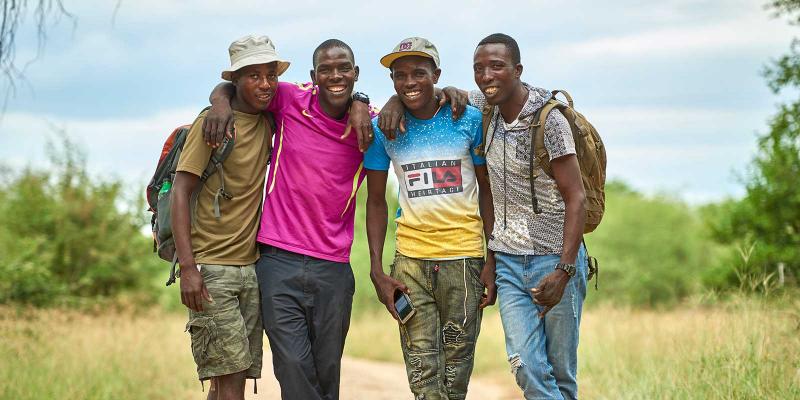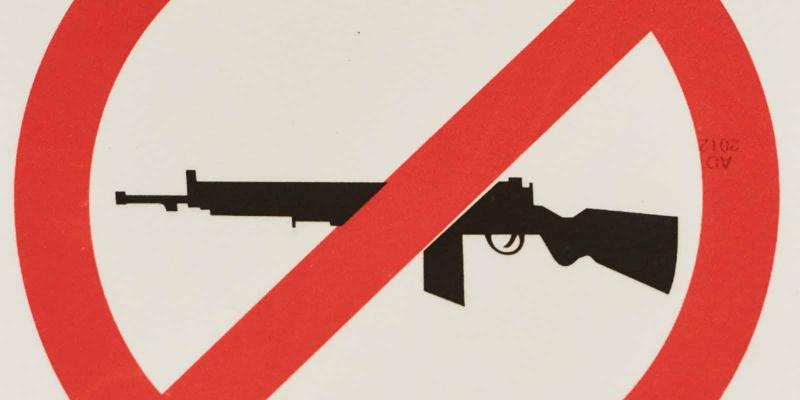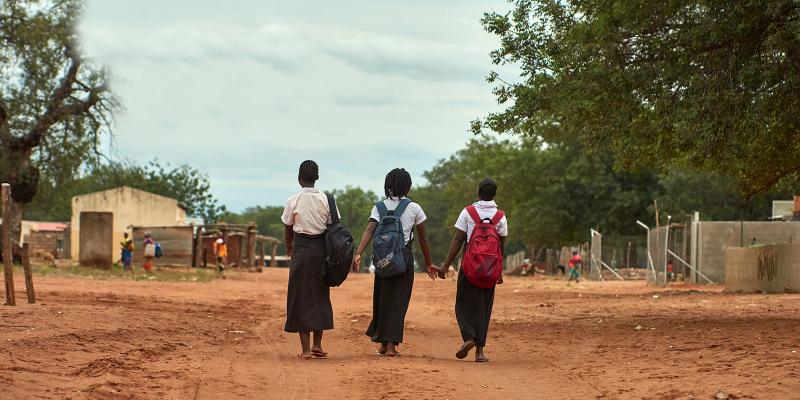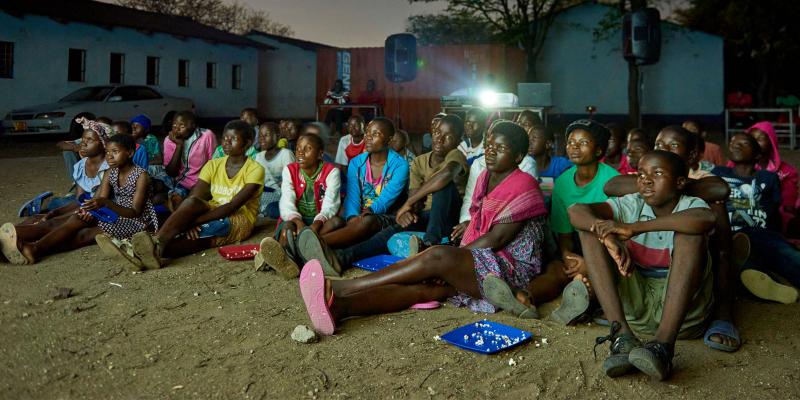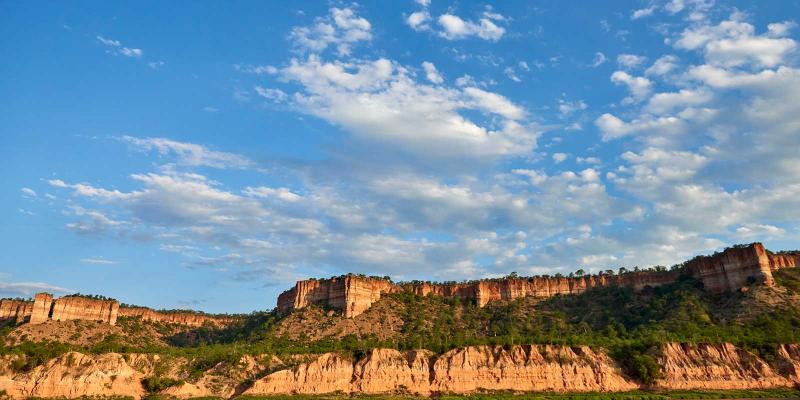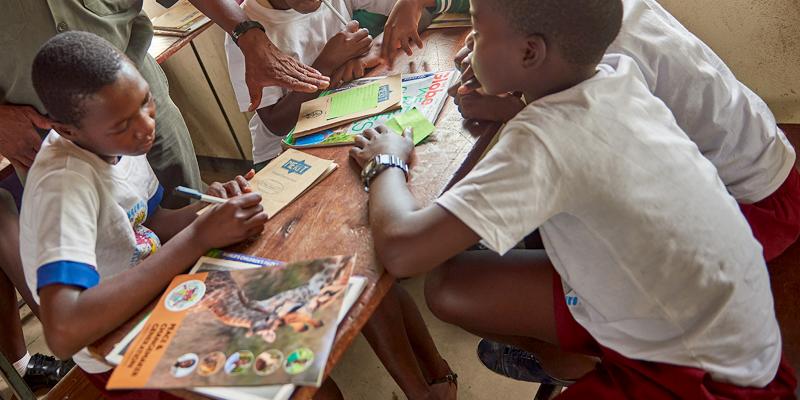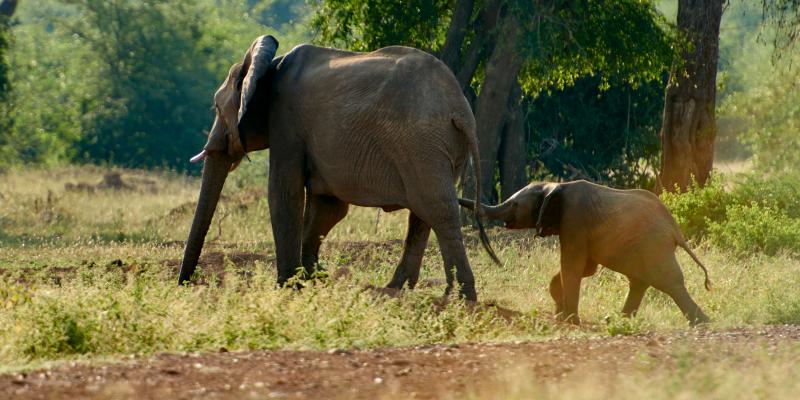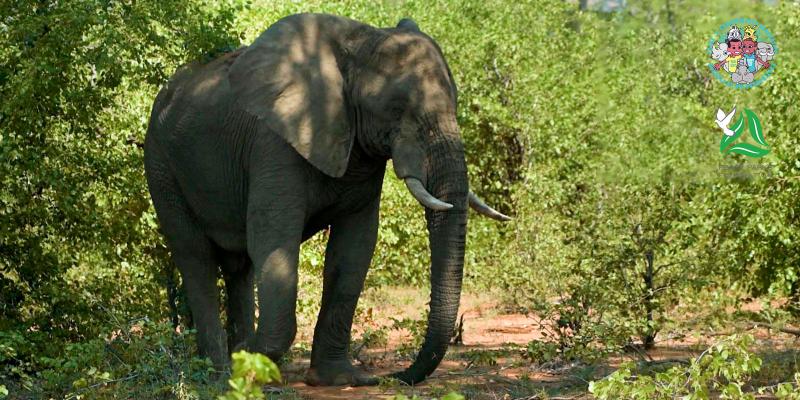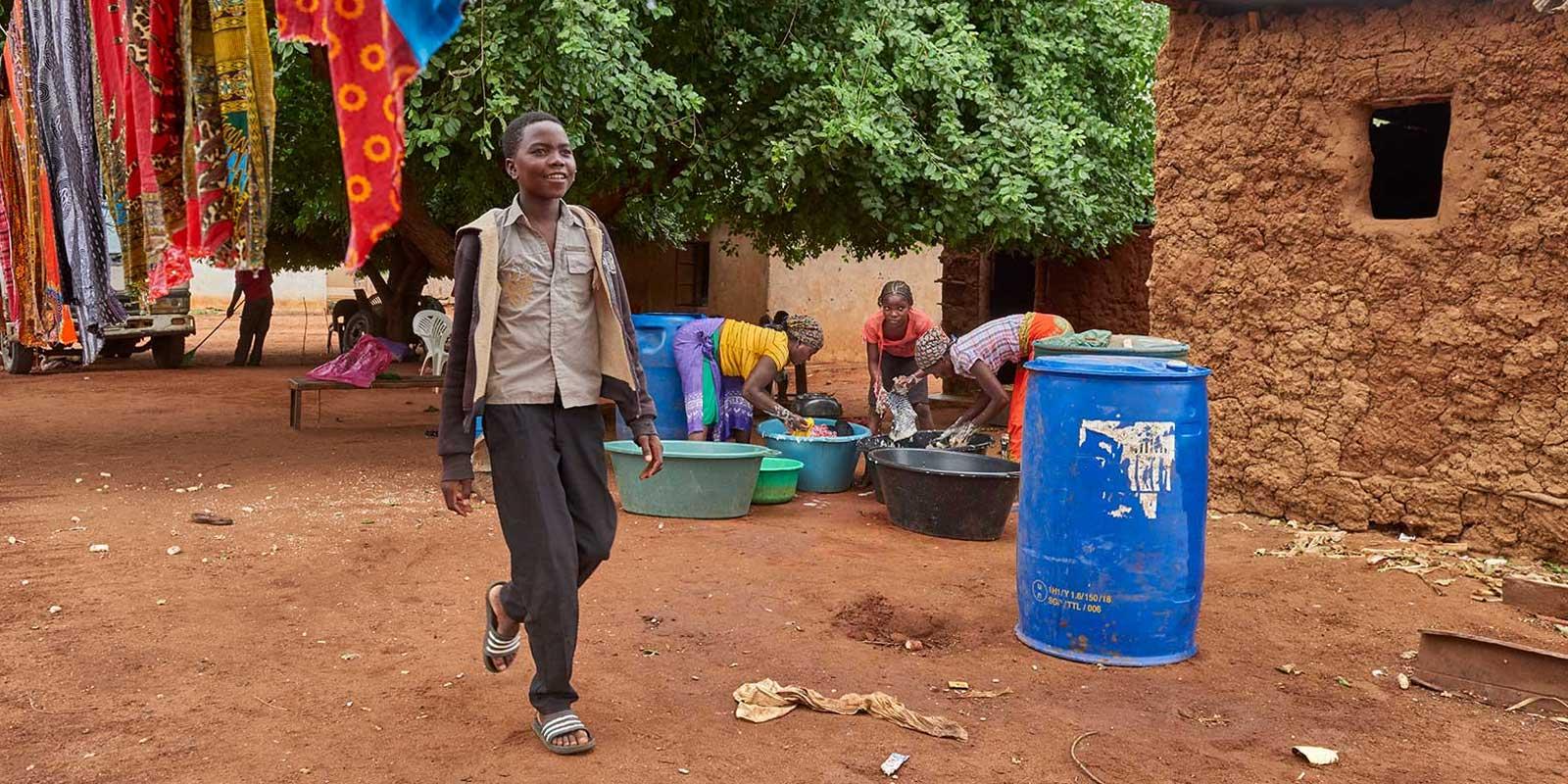
“Many of the boys my age in our village don’t go to school. They poach instead. By killing animals, they are committing crimes that will make Mozambique poorer. But these boys’ rights are also being violated when their parents encourage them to poach instead of going to school. It is every child’s right to be able to go to school,” says Luis, who lives near Limpopo National Park in Mozambique.
My siblings and I go to school, both my brothers and sisters. We’re not rich by any means, but mum and dad work hard so we can go to school and have a good life. They do it because they love us. Mum and dad grow maize, sweet potato and cassava. Both of them work in the fields, and on the weekends my siblings and I help out.
“Boys my age who don’t go to school almost always start poaching in the park, and they are often encouraged by their own parents. It’s crazy, because they can get shot or end up in prison. There are many here in the village who are poachers, and I think it’s mainly because they haven’t had enough schooling. They don’t understand how important it is to protect animals and the natural environment. That everything in nature is priceless and connected as part of a natural cycle. They don’t understand that these animals are endangered; that one day there won’t be any rhinos anymore, and then they won’t be able to earn any more money.”
You have to work hard
“Some say that they poach because there are no jobs here. But I don’t think there’s a single good reason that makes poaching ok. If you want a job and to survive, you can always find something. You can be a fisherman or a farmer like my dad. Then you get both food to eat and crops, or a catch to sell and you can earn money. They are not easy jobs, you have to work hard to survive. And dad says it’s getting harder to grow maize and sweet potato; that the rains don’t come when they should and that it’s because of climate change. But those of us who live here can actually also work as rangers and protect animals instead of killing them. Then we’re looking after the natural environment and helping the climate too.I’ve learned about nature, the environment and wild animals at school, but my love for animals and desire to protect them instead of killing them comes from my parents.”
Knowledge is vital
“Knowledge is our only chance if we’re going to put an end to poaching. We need to learn a lot about animals, nature, the environment and children’s rights at a young age. That way we’ll be better than parents today, and we won’t send our children out to poach but instead give our girls and boys the right to go to school as they should.We must also stop thinking that poachers are cool and successful. They are nothing more than criminals. We need role models who have been successful because they have gone to school and worked hard, not because they have stolen and killed. I want to be such a person. I want to be an engineer and earn money, have a lovely house and a nice car. But I also want to shine by doing something important in life, for society. For building and helping, instead of tearing down and destroying.”
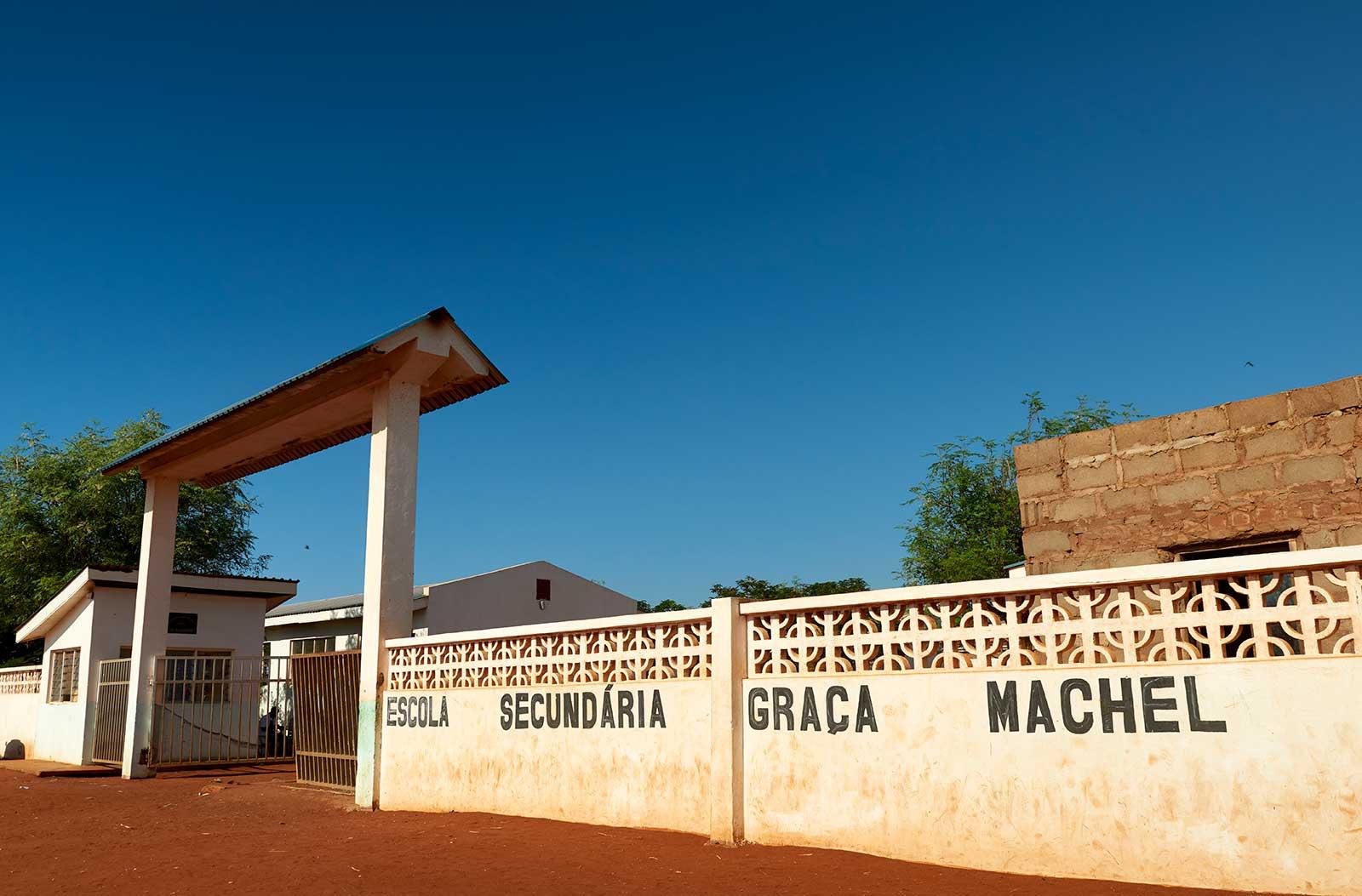
School most important
“If I have to sell the tin roof of our house to afford to give my children a good education, then so be it! Nothing is more important than education. Then you can get a good job and not start poaching and be tricked into believing it’s a good life. Because it isn’t,” says Luis’ dad Isaac.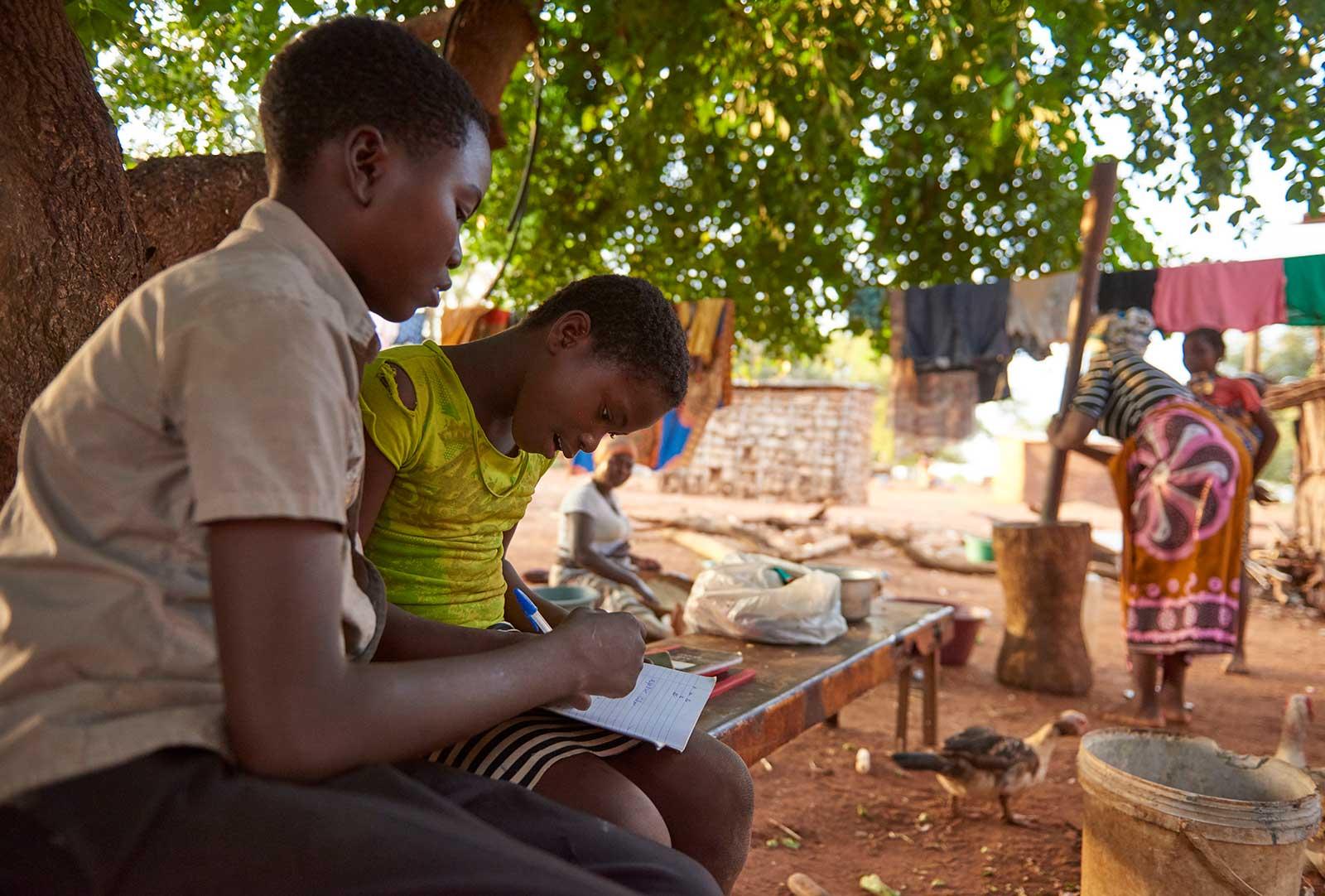
Girls married off
“Not all girls get to go to school here, but in my family, both the girls and the boys go to school. My favourite subject is Portuguese, and when I’m older I want to be a teacher,” says Rijay, 10.“It’s hardest for girls to stay on at school, because many girls my age are married off. It’s wrong that someone who is just a child themselves has to be a parent and know how to look after a child. All children should go to school,” says Luis.
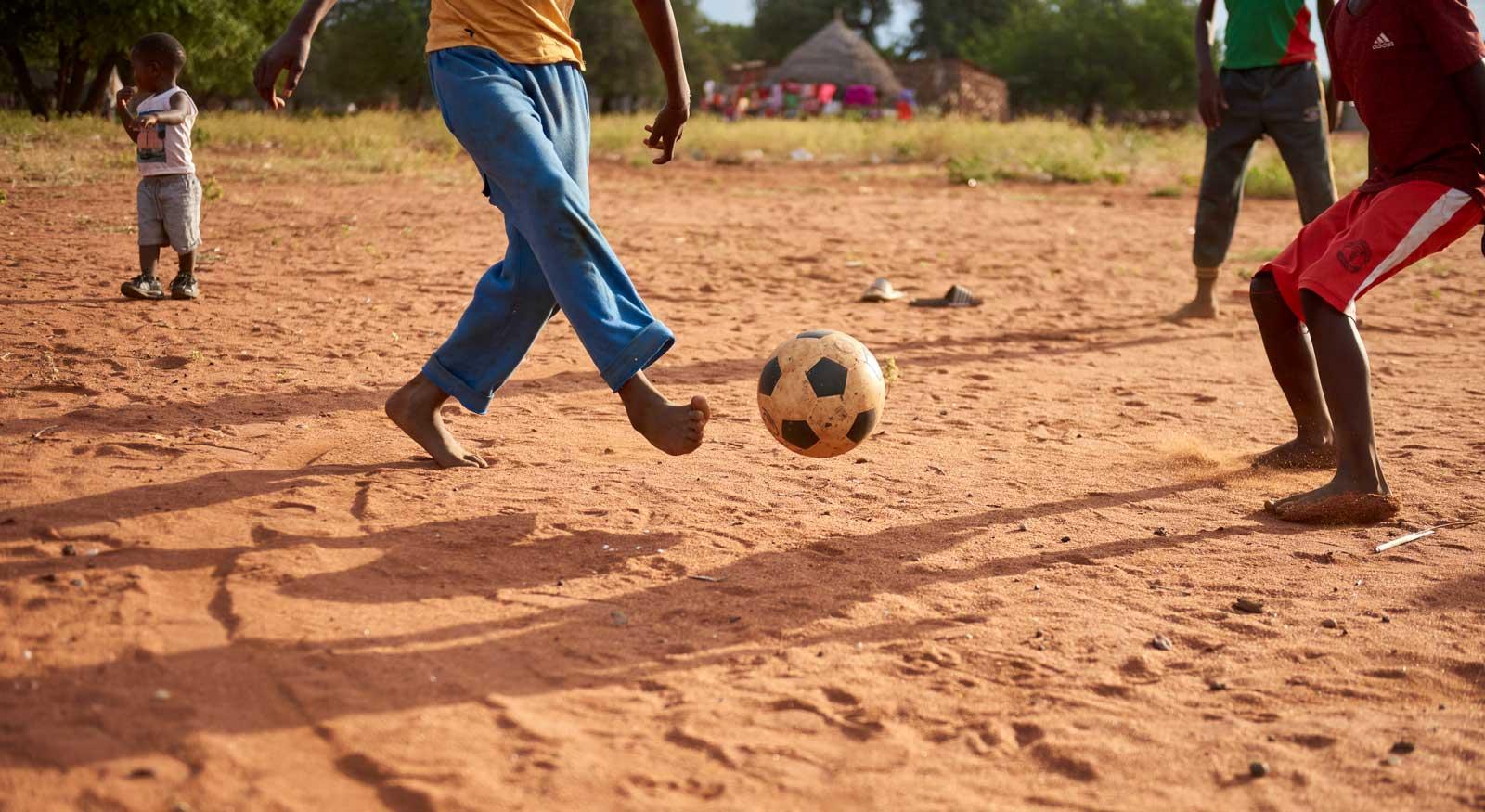
“Playing football with my friends is the best!” says Luis.
Mozambique is affected
Luis says the boys who quit school and start poaching are
making Mozambique poorer in three ways:
1. If you don’t go to school and learn important things, it will be hard to be part of helping to develop Mozambique.
2. If elephants, rhinos, impalas and other amazing animals die out, Mozambique will lose both its natural and cultural wealth. The country will be poorer and everyone will lose out.
3. If poaching continues, the country and the villages will lose money and jobs that are created when tourists want to come and experience the wild animals. Villagers can start working at hotels and restaurants, and as guides and rangers, but if there are no wild animals, then no tourists will come and there will be no jobs left.
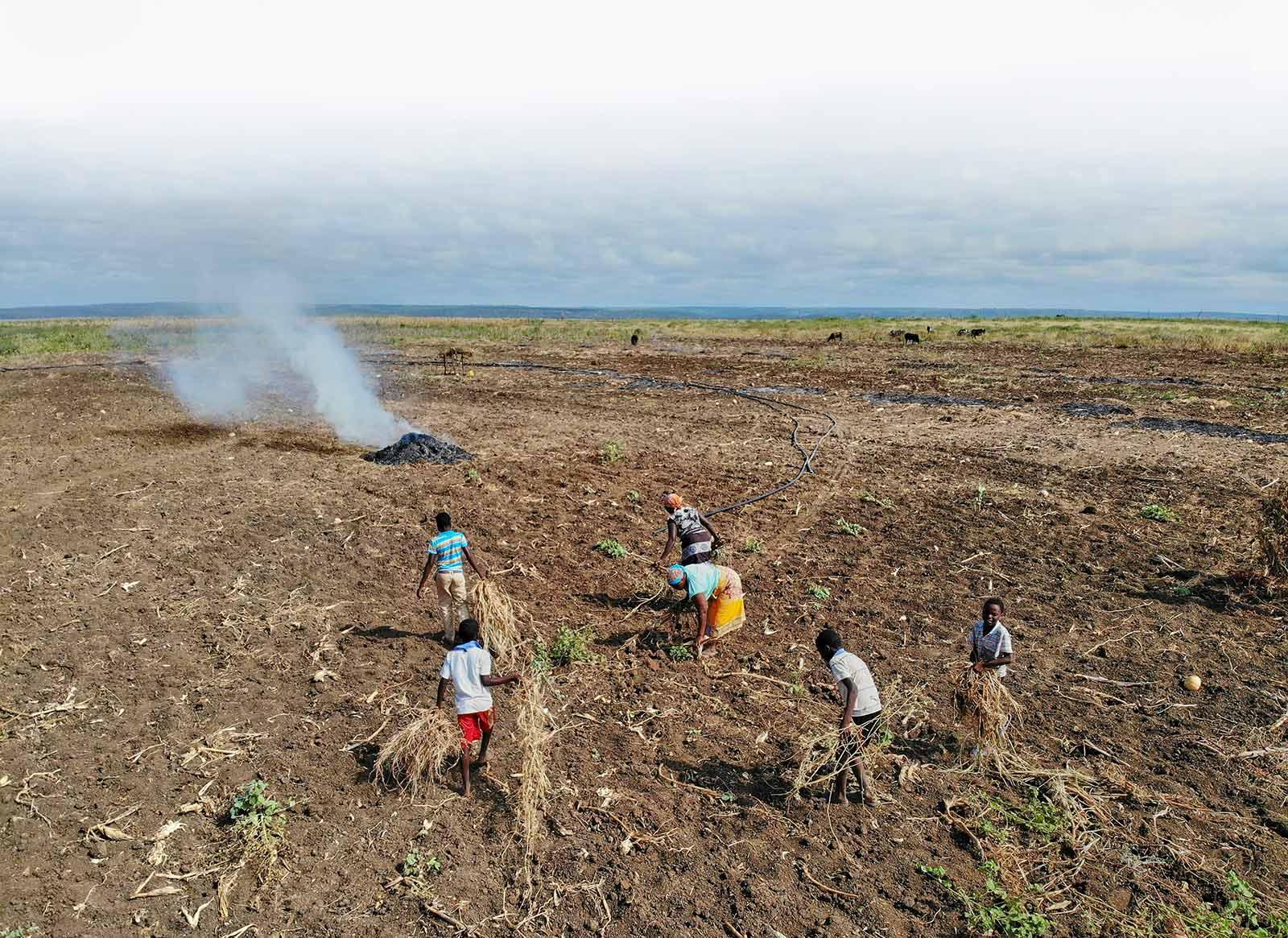
“On the weekends, my siblings and I help mum and dad in the fields,” says Luis.
Family against poaching
“At the moment, eight men from the village are in prison in South Africa, with long sentences of up to eight years. And eleven villagers have been shot and killed by rangers: ten in South Africa and one in Mozambique,” says Luis’ dad Isaac.“My cousin was killed in South Africa for poaching rhinos. His two-year-old son was left without a dad. It’s terrible. At the same time, I understand why it happened. Poaching is a crime, everyone knows that, but he still went off,” says Luis.
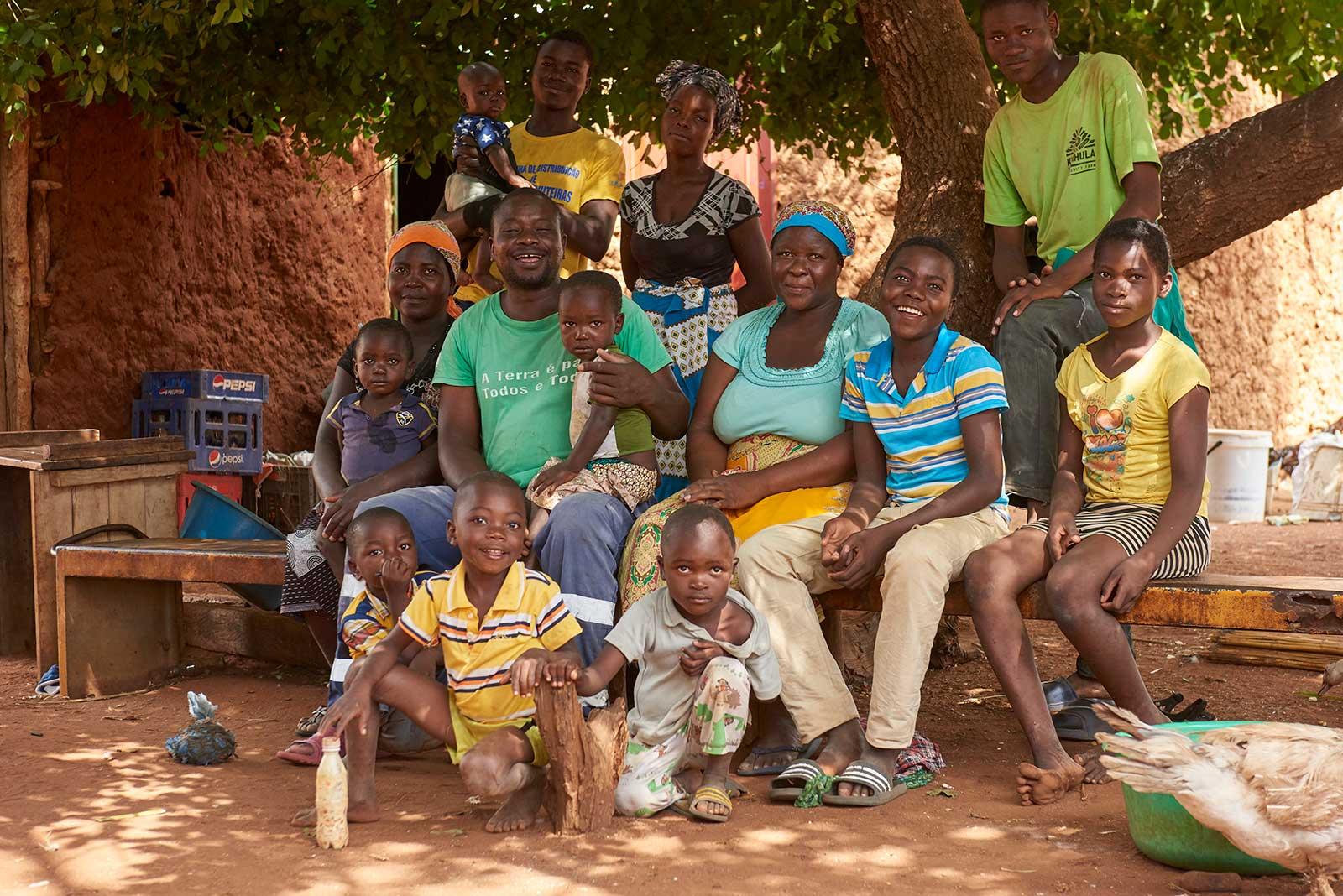
Related stories
Långgatan 13, 647 30, Mariefred, Sweden
Phone: +46-159-129 00 • info@worldschildrensprize.org
© 2020 World’s Children’s Prize Foundation. All rights reserved. WORLD'S CHILDREN'S PRIZE®, the Foundation's logo, WORLD'S CHILDREN'S PRIZE FOR THE RIGHTS OF THE CHILD®, WORLD'S CHILDREN'S PARLIAMENT®, WORLD'S CHILDREN'S OMBUDSMAN®, WORLD'S CHILDREN'S PRESS CONFERENCE® and YOU ME EQUAL RIGHTS are service marks of the Foundation.



